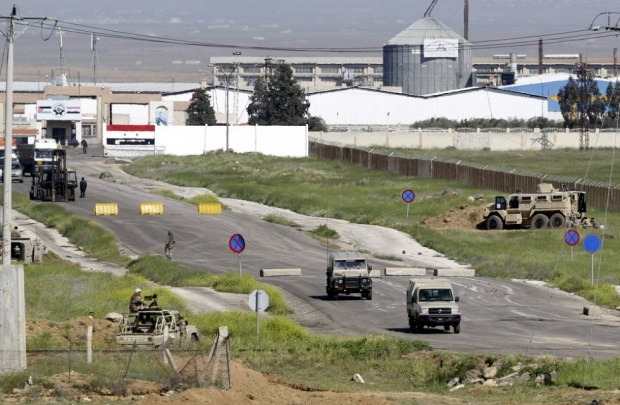Beirut – Negotiations between the Jordan government and Syrian opposition factions have intensified in recent days ahead of the reopening of the Nassib border-crossing with Syria.
The Jordanian government is working on renovating the crossing ahead of its official reopening in early 2018, two years after its closure.
Head of the Yarmouk Army politburo Bashar al-Zoghby said that the Jordanian authorities consulted with the Syrian factions in the south of the war-torn country over the possibility of reopening the crossing.
He told Asharq Al-Awsat: “We agreed to the possibility, but with conditions. The most important one is keeping away any regime military or security presence away from the crossing.”
He said that the factions do not object to civilian powers managing the crossing.
The Yarmouk Army controls the Nassib crossing from the Syrian side of the border.
Zoghby added that negotiations over reopening the crossing are still in their early stages.
“The only way the regime can reach the crossing is through war. It has tried the war for years and it has not made any gains from it,” he noted.
The efforts to reopen the crossing coincided with a visit paid by Syrian Defense Minister Fahd Jassem al-Freij to one of the military positions in the Quneitra province.
It also took place amid a warning by an opposition military commander in the South against the regime over amassing the military in the area.
Jordan and Syria are connected through both the Nassib and Daraa crossings.
In Quneitra, Freij said that the conflict in Syria is part of the 1973 war against Israel and its agents.
“Every victory achieved by the regime and its allies in this war is a completion of the victory made in the 1973 against the Zionist entity,” he said.
Syrian opposition factions made light of Freij’s visit, saying that it was an attempt to lift the morale of the forces deployed there.
“These forces have not accomplished any victory in the area,” said commander of the southern alliance in Quneitra Qassem Najm.
The timing of the visit coincides with the 1973 war that took place on October 6.
“During the war, Hafez al-Assad sold the Golan Heights to Israel in exchange for cementing his power in Syria,” Najm told Asharq Al-Awsat.
“This visit will not change the reality on the ground where the rebels have the upper hand,” he declared.
